Maintaining good mental health is essential for overall well-being. By practicing self-care techniques, you can better manage stress, anxiety, and other mental health challenges. Below are seven effective self-care techniques to help you prioritize your mental health:
Table of Contents:
- Exercise Regularly
- Practice Mindfulness
- Engage in Creative Self-Expression
- Cultivate Social Connections
- Eat a Balanced Diet
- Prioritize Quality Sleep
- Practice Self-Compassion
1. Exercise Regularly
Physical activity has been shown to have a positive impact on mental health. Regular exercise releases endorphins, which are known as "feel-good" chemicals that can help reduce stress and anxiety.
2. Practice Mindfulness
Mindfulness involves being fully present and aware of your thoughts and feelings without judgment. By practicing mindfulness techniques, such as deep breathing or meditation, you can reduce feelings of stress and improve your mental clarity.
Mindfulness is a powerful tool for maintaining good mental health. By being fully present in the moment and acknowledging your thoughts and feelings without judgment, you can reduce stress and anxiety, improve focus and concentration, and enhance your overall well-being.
Some mindfulness techniques you can incorporate into your self-care routine include:
- Meditation: Take a few minutes each day to sit quietly and focus on your breath. Notice when your mind starts to wander and gently guide it back to the present moment.
- Yoga: Practice yoga poses that encourage mindfulness and body awareness. Focus on the sensations in your body as you move through the poses.
- Journaling: Write down your thoughts and feelings without judgment. This can help you process your emotions and gain insight into your mental state.
- Deep breathing: Take deep, slow breaths to calm your nervous system and bring your focus back to the present moment.
By incorporating mindfulness into your self-care routine, you can cultivate a greater sense of peace and well-being in your daily life.
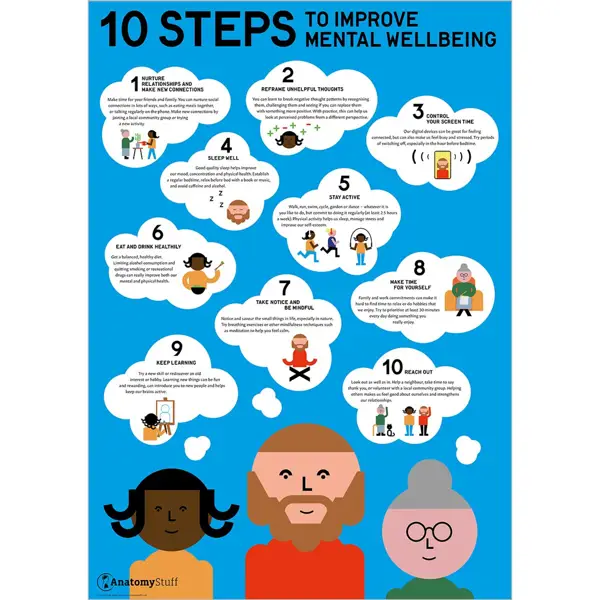
3. Engage in Creative Self-Expression
Expressing yourself creatively, whether through art, writing, music, or other forms of self-expression, can be a therapeutic outlet for processing emotions and reducing anxiety.
Engaging in creative self-expression is a powerful self-care technique for maintaining good mental health. By expressing yourself creatively, whether it's through art, writing, music, or dance, you can release pent-up emotions and find a sense of inner peace and balance.
Some ways to incorporate creative self-expression into your self-care routine include:
- Journaling: Write down your thoughts, feelings, and experiences in a journal to process your emotions and gain insight into your mental well-being.
- Art Therapy: Use painting, drawing, or other art forms as a way to express yourself visually and connect with your emotions on a deeper level.
- Music Therapy: Listen to or play music that resonates with you to uplift your mood, reduce stress, and express your innermost thoughts and feelings.
- Dance Therapy: Move your body to the rhythm of music as a form of self-expression and release negative energy, while improving your physical and mental well-being.
By engaging in creative self-expression, you can tap into your inner creativity, improve your mental health, and enhance your overall well-being. Make time for self-care and explore different forms of creative expression to discover what works best for you.
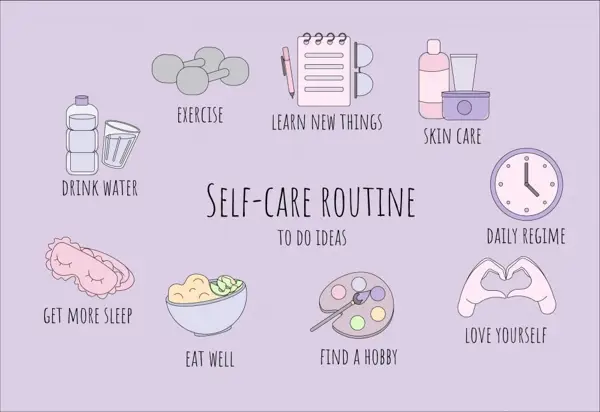
4. Cultivate Social Connections
Human connection is essential for good mental health. Make an effort to spend time with loved ones, reach out to friends, or join social groups to combat feelings of isolation and loneliness.
When it comes to self-care for mental health, it's important to remember the importance of cultivating social connections. Building and maintaining relationships with others can provide a sense of belonging, support, and comfort during difficult times.
One way to cultivate social connections is to regularly reach out to friends and loved ones, whether through phone calls, text messages, or in-person interactions. Spending time with others who care about you can help reduce feelings of loneliness and isolation.
Another way to nurture social connections is to participate in group activities or events that interest you. This could be joining a club, volunteering for a cause you believe in, or attending social gatherings in your community. Engaging with others in shared interests can help create a sense of community and belonging.
Ultimately, taking the time to invest in your relationships and prioritize social connections can have a positive impact on your mental health and overall well-being. So, don't underestimate the power of connection in your self-care routine.
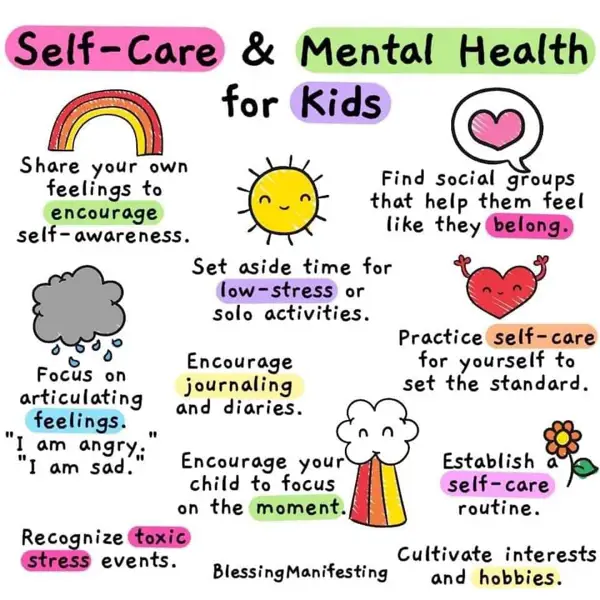
5. Eat a Balanced Diet
Your diet can impact your mental health. Consuming a balanced diet rich in fruits, vegetables, whole grains, and lean proteins can provide essential nutrients that support brain function and mood regulation.
Eating a balanced diet is crucial for maintaining good mental health. Consuming a variety of nutrients such as vitamins, minerals, protein, and fiber can help regulate mood and energy levels. Make sure to include fruits, vegetables, whole grains, lean proteins, and healthy fats in your meals. Avoid excessive consumption of sugar, processed foods, and caffeine, as these can negatively impact your mental well-being. Prioritizing a balanced diet can help improve your overall mood, focus, and emotional well-being. Remember, self care checklist your body is a key component of self-care for mental health.
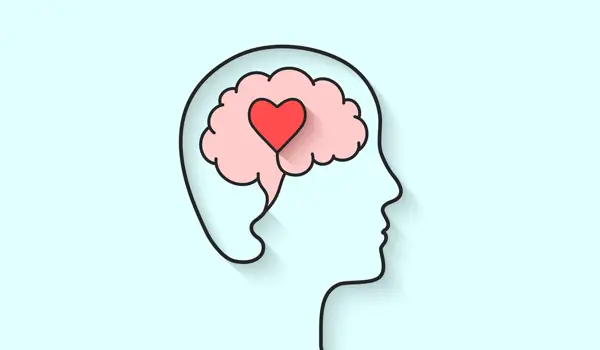
6. Prioritize Quality Sleep
Sleep is crucial for mental health. Aim to get 7-9 hours of quality sleep each night to support your emotional well-being and cognitive function.
Quality sleep is essential for overall mental health and well-being. It is important to prioritize getting enough restful sleep each night to support cognitive function, emotional stability, and overall mood.
Some tips for improving the quality of your sleep include:
- Establishing a regular sleep schedule and sticking to it
- Creating a relaxing bedtime routine to signal to your body that it's time to sleep
- Avoiding caffeine, screens, and stimulating activities before bed
- Creating a comfortable sleep environment with a supportive mattress and pillows
- Managing stress and anxiety through relaxation techniques like meditation or deep breathing exercises
- Seeking help from a healthcare professional if you have trouble sleeping consistently
7. Practice Self-Compassion
Be kind to yourself and practice self-compassion. Treat yourself with the same kindness and understanding that you would offer to a friend, and prioritize self-care activities that nurture your mental health.
Self-compassion is an important aspect of self-care when it comes to maintaining good mental health. Here are some techniques you can use to practice self-compassion:
- Be kind to yourself: Treat yourself with the same kindness and understanding that you would offer to a friend in need.
- Acknowledge your feelings: It's okay to feel what you're feeling. Validate your emotions and give yourself permission to experience them.
- Avoid self-criticism: Refrain from harsh self-judgment and negative self-talk. Instead, practice self-acceptance and forgiveness.
- Practice mindfulness: Stay present in the moment and focus on your thoughts and feelings without judgment.
- Take care of your physical health: Make sure you are getting enough rest, eating well, and engaging in physical activity to support your mental well-being.
- Seek support: Don't be afraid to reach out to loved ones, a therapist, or a support group for help when you need it.
- Practice gratitude: Focus on the things you are grateful for in your life and express appreciation for yourself and others.
Remember, practicing self-compassion is an ongoing journey that takes time and effort. Be patient with yourself and allow yourself to make mistakes along the way. By incorporating self-compassion into your self-care routine, you can better manage your mental health and overall well-being.
Key Takeaways:
- Regular exercise, mindfulness, and self-expression can positively impact mental health.
- Cultivating social connections and prioritizing quality sleep are important self-care practices.
- A balanced diet and self-compassion can support overall well-being and mental health.
Frequently Asked Questions:
- Q: How often should I exercise for mental health benefits?
- A: Aim for at least 30 minutes of moderate exercise most days of the week to experience mental health benefits.
- Q: What are some mindfulness techniques I can try?
- A: Deep breathing, meditation, and body scan exercises are popular mindfulness practices to reduce stress and promote mental clarity.
- Q: How can I cultivate social connections for better mental health?
- A: Make an effort to reach out to friends, participate in social activities, and join community groups or clubs to foster meaningful connections.
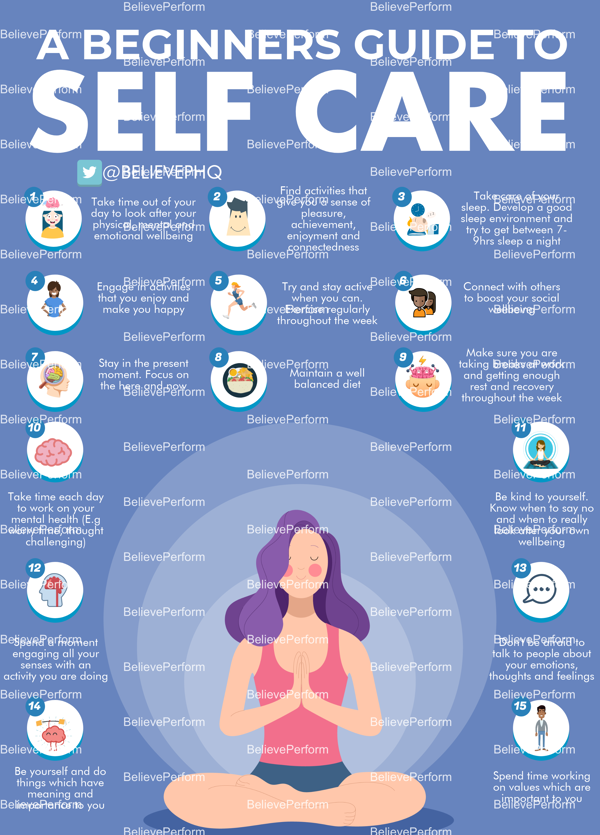


Recent Comments